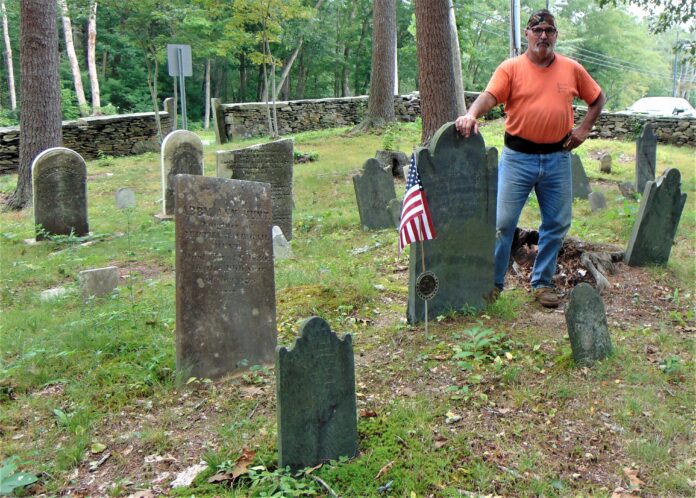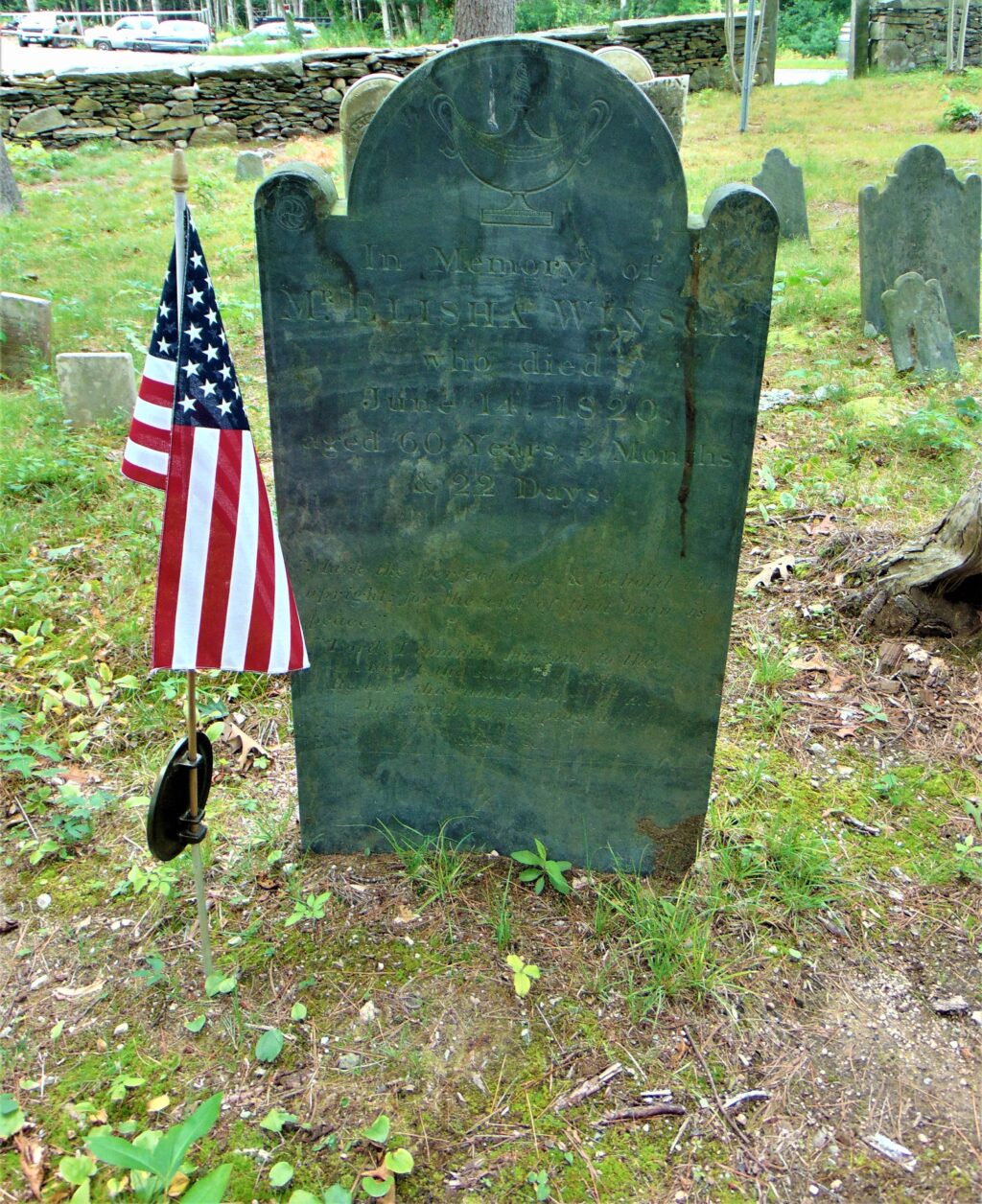
GLOCESTER – Bill Brown and his crew of nine volunteers have spent the last five years finding and cleaning up the historical cemeteries of Glocester, all 128 of them. They cut and cleared brush and trees, mowed, restored and refurbished gravestones, and rebuilt surrounding fieldstone walls, working on a regular schedule to complete the task. The question now is who will take up the task of preserving what they have accomplished.
“We can’t do this forever,” Brown told the Glocester Town Council at its recent meeting.
Brown asked the council to consider adding a new department of three full-time employees to care for the cemeteries. Brown explained that he currently gets a House grant, a Senate grant, and a grant from the Glocester Historical Society, as well as funds from the town to help pay for tools and equipment needed. But, he added, there needs to be some kind of full-time care provided moving forward.
“At this point in time, no changes can be made like that until we enter a new fiscal year,” responded Council President William Worthy.
Tax Assessor Jessica Parker suggested getting, “creative,” by possibly accepting donations from the owners of the cemeteries, pursuing grants and/or offering tax exemptions for property owners who were willing to care for the cemeteries on their land.
“Who will monitors those (cemeteries) to see if they are doing what they are supposed to do?” asked councilor Walter Steere.
“I don’t have the manpower to do it,” said Parker.
“Nobody does,” replied Steere.
Brown added that some cemeteries had family names which no longer exist in town and that some of the cemeteries are not owned by anyone.
“Many are not included on anyone’s deeds,” he said, pointing particularly to those found in housing developments. “Families died off and the property changed hands. Others don’t have any interest at all in taking care of them. It’s not their family…they don’t care if it’s overgrown. That’s where we come in.”
Brown added that four are taken care of by FM Global, and four by the Glocester Land Trust. They all vary by size and amount of gravesites, some of which are very large and off the beaten path.
“Some are in the middle of nowhere,” said Brown. “There are some in Durfee Hill Management Area that I had to get permission from Rhode Island Parks, Fish and Wildlife to clean.”
Brown said he was concerned that the work he and his crew have done might be in vain if an organized group of people were not in place to continue the upkeep.
“One cemetery goes a year without being cleaned, things start growing over again,” warned Brown.
When asked what other towns do, Brown explained that some of the larger, more prosperous towns, like Barrington and Bristol, hired employees to care for the historical cemeteries in their towns, but they don’t have the number of cemeteries that Glocester does. He added that his volunteer group works on a 36 week schedule to properly maintain the cemeteries in town.
“If we miss one week, we’re behind,” he added. “We set the bar for the State of Rhode Island. I think it’s in our best interest to keep that bar set high.”
“You have set the bar very clearly,” responded Arnold. “We’re all very proud of what you have done.”
Though new employees couldn’t be added, Arnold suggested using current resources like town planner and grant writer Karen Scott to pursue other avenues in the meantime.
Brown later explained that he started the volunteer group after attempting to find his own ancestors in the various cemeteries. His family ancestors, who date back to 1730 in Glocester, were buried in various places, all of which had been left untouched for years.
“As I located them it was clear that they had been overgrown and forgotten for over a 100 years or more, which made me feel angry because of the lack of respect for these folks,” recalled Brown.
After a 7-year clean up of family member cemeteries with the aid of his brother Richard, he decided to make it his mission to clean up the other cemeteries as well. With the help of town historian Edna Kent and others, including members of the Glocester Heritage Society, he began to uncover them. Brown then put an ad out looking for volunteers to help. Help came, little by little, and things started to happen. Eventually, Brown joined the Heritage Society – he is now vice president – and the society donated money to buy equipment to help get the work done. That was the start, said Brown. Now volunteers number anywhere from 10-16 on any given day.
“We started finding forgotten veterans from the Revolutionary War, the Civil War, the Indian War, the War of 1812, etc.” he explained. “There were cemetery signs that were missing or not legible, broken and fallen gravestones…”
Brown, however, made the point that a solid core of organized people is needed to continue keeping the historical cemeteries in order. It takes more than just volunteers, he added.









